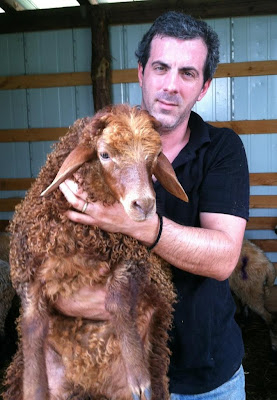After the Gnat injects the Blue Tongue virus into the sheep by biting through the skin and feeding on its blood, the virus rapidly replicates and signs of illness may appear in three to nine days. High fever (106-108 degrees), ear or face swelling and peeling of the Epithelial mouth lining are all effect of Blue Tongue. The tongue may even swell so large that it becomes "Blue" and protrude from the mouth. This causes severe pain and affected animals will usually not eat available feed. The sheep feet may also become inflamed resulting in laziness which can cause fetal defects of unborn lambs during pregnancy.
Blue Tongue does not spread from one sheep to another, but there can be a flock outbreak due to the presence of the virus in the gnats which inhibit the area. An outbreak usually doesn't occur until July and ends shortly after the first frost. In areas further South that don't have frost, the virus is endemic and infects all sheep at an early age. These sheep develop immunity and seldom show signs of illness.
A vaccine is available for one strain of Blue Tongue but it does not cross protect well against other strains. California has made vaccines available for other strains which can only be used by producers in that state.
Housing Sheep at night and applying pesticides to their head will reduce exposure but not eliminate the threat of gnats.
Make it a great day!
Andy Karras
 |
| Awassi Sheep |


